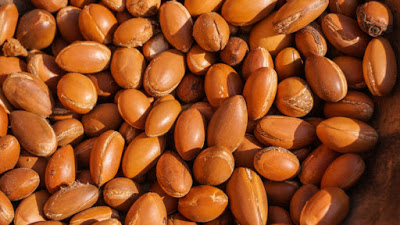Standards for export goods have been established globally and are expected to be satisfied before such goods can be accepted into an importing country, failure for which there shall be immediate rejection and repatriation to originating country.
In Nigeria, the Private Inspection Agents (PIAs) are assigned the responsibility of ensuring compliance with required standards for categories of export goods, for which they issue certificate when the products meet the standards for export.
Some exported food products including beans from Nigeria have, however, faced rejection and return to the country for failing the tests to establish the required standards.
Concerned about the developments on product rejected after they had been certified compliant with the standards, global trade expert, Dr. Obiora Madu, said the PIAs should take responsibility and explain what the problems are.
Making reference to a particular rejected export product vegetables, Madu said more attention must be given to required details and that Nigeria could not afford to be left behind as issues of standards for export goods were global.
“The world is now a global village, it means standards are meant for everybody. It is about ethics, following standards. If people are ethical, then they would stay with the standards,” Madu said.
For the issue in question, Madu said that a consignment of exported vegetables was returned immediately to Nigeria after it arrived its destination of the importing country in Europe without a Phytosanitary
Certificate.
Certificate.
A Phytosanitary Certificate certifies plant and plant products are free from regulated pests, and conforms to other phytosanitary requirements as specified from the importing country.
It is therefore a concern that after the PIAs, who are employed to check quality and keep records of volume of goods exported, issue a Clean Report of Inspection for goods the goods are rejected and returned to Nigeria.
Dr. Madu was of the opinion that export goods from Nigeria did well in terms of quality and acceptability in global markets at a time when the country operated through the Commodities Board.
He said: “In the days when the commodities board was there, they followed the commodities from the seed to when it becomes a product to be exported. And at that point in time, the board would buy, check
quality and export by themselves.”
quality and export by themselves.”
Madu observed that the absence of the commodities board has left the export trade in Nigeria without adequate check as it ought to be.
He also expressed concern over the high cost of exporting goods from Nigeria, as he blamed that factor for reasons Nigeria had yet received its due recognition as the producer of at least 60 per cent of shear butter in the world.
“Nigeria produces 60 per cent of shear butter in the world, but in the international market you see shear butter from other West African countries, because exporting the product from Nigeria is very expensive, so, you see many people selling locally rather than exporting,” Madu added.


































































